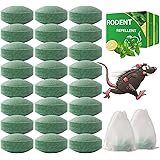Reports of five illnesses have prompted a recall of frozen custard apple pulp.
The product, sold under the Vadilal Industries brand, was distributed nationwide, according to the company’s recall notice posted today by the Food and Drug Administration.
According to the recall notice, sample testing by the FDA showed the custard apple pulp to be contaminated with Salmonella.
“The recall was initiated after FDA received a single complaint reporting five illnesses and FDA sampling revealed the presence of Salmonella in the product,” according to the company’s recall notice.
The Newark, NJ, company sent the 35.27-ounce packages of the product to retailers.
There is concern that consumers may have the frozen product in their homes because of its long shelf life. Consumers can use the following label information to determine whether they have the recalled product:
| Product Code | Product Description & Size | Batch /lot code | UPC | Best Before |
|---|---|---|---|---|
| FPEP44302 | Custard Apple Pulp | KWHO, KRQO | 8901777282168 | September 2023 |
The batch codes are printed on the back of the packet.
Consumers who have purchased Custard Apple Pulp with these batch codes should discontinue use or return it to the store of purchase for a full refund. Retailers that may have further distributed the recalled lot codes should share this notice with their customers, according to the recall notice.
Customers with questions may contact the Vadilal Industries at 732-333-1209.
About Salmonella infections
Food contaminated with Salmonella bacteria does not usually look, smell, or taste spoiled. Anyone can become sick with a Salmonella infection. Infants, children, seniors, and people with weakened immune systems are at higher risk of serious illness because their immune systems are fragile, according to the CDC.
Anyone who has eaten or handled any of the recalled product and developed symptoms of Salmonella infection should seek medical attention. Sick people should tell their doctors about the possible exposure to Salmonella bacteria because special tests are necessary to diagnose salmonellosis. Salmonella infection symptoms can mimic other illnesses, frequently leading to misdiagnosis.
Symptoms of Salmonella infection can include diarrhea, abdominal cramps, and fever within 12 to 72 hours after eating contaminated food. Otherwise, healthy adults are usually sick for four to seven days. In some cases, however, diarrhea may be so severe that patients require hospitalization.
Older adults, children, pregnant women, and people with weakened immune systems, such as cancer patients, are more likely to develop a severe illness and serious, sometimes life-threatening conditions.
Some people get infected without getting sick or showing any symptoms. However, they may still spread the infections to others.
(To sign up for a free subscription to Food Safety News, click here.)
Note: This article have been indexed to our site. We do not claim legitimacy, ownership or copyright of any of the content above. To see the article at original source Click Here













